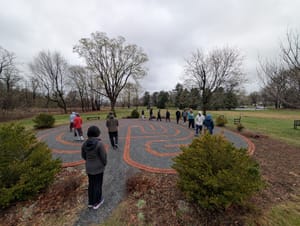Using Facebook can make you depressed, according to a survey of some relevant social-science research in the magazine Nautilus. The reasons include the fact that everyone online always seems to be doing better than you are, the stress of responding to other people’s requests, and sheer envy. Simplistically: Asking for help on Facebook can be helpful to your own state of mind, but it offloads your stress onto others.
I took a few things away from this article: Useful techniques, or life hacks, for those who want to use social networking better and live better.
See more people in person
There is something fundamental about meeting with people face to face that fulfills an essential human need. But you could look at this cynically, too: People will like you more if you talk to them directly, as opposed to just posting online.
… studies show we don’t actually present our best, most sympathetic selves when we write, although we think we do. Behavioral scientist Nicholas Epley of the University of Chicago had business-school students do an “elevator pitch” in several formats. While the students felt that they presented themselves better in a written pitch, the evaluators judged them more favorably in a spoken pitch.
This also applies to Facebook: A recent study that echoes Epley’s results showed that our friends think we are better in person than in our profiles.
So look for opportunities to meet your Facebook friends in real life. Meet for coffee. Go to lunch. Grab a beer together. (And maybe leave your phone in your pocket for an hour while you’re meeting with them, eh?)
Use social media more actively
Passively browsing Facebook or Twitter is addictive. It’s also more likely to make you feel like crap. People who use Facebook more actively (posting, commenting, and liking other people’s posts) feel better than those who use it passively, according to one study.
Perhaps the most intriguing finding in the recent literature, however, is that people do themselves the most harm when they’re not posting. …. On the one hand, the finding is a good thing. It means that there’s a way to escape the Facebook blues without losing access to social media’s positive benefits: Be more active. On the other hand, very few of us take advantage of that loophole.
This lesson is easy to implement: Engage more. Don’t just browse.
Post considerately
It’s easy to slip from #humblebrag into outright bragging. And to be honest, most of what we post is positive, uplifting, the happiest moments from our lives — because who wants to hear about yet another episode of your kids acting like terrorists or your husband moping around all day?
Yet we can stop short of glorifying everything. As the article puts it:
An extraordinary achievement of human civilization is that, every day, people suppress the instinct to outcompete others in order to build meaningful and rewarding relationships. Yet online, with those seemingly harmless #nofilter travel pics, flawless #iwokeupthisway selfies, and relentlessly positive #humblebrags, we inadvertently make our friends feel like losers and contribute to a swirling vortex of envy, in which we ourselves risk drowning.
It doesn’t have to be that way. Cocktail party conversation isn’t normally all about your own glorious vacation photos. Sometimes it’s about the other person, or about politics, or about Star Wars, or about how you had a rough week at work but you’re really glad it’s Friday and you’ve got a glass of wine in your hand. Maybe we should try to comport ourselves online the same way.



